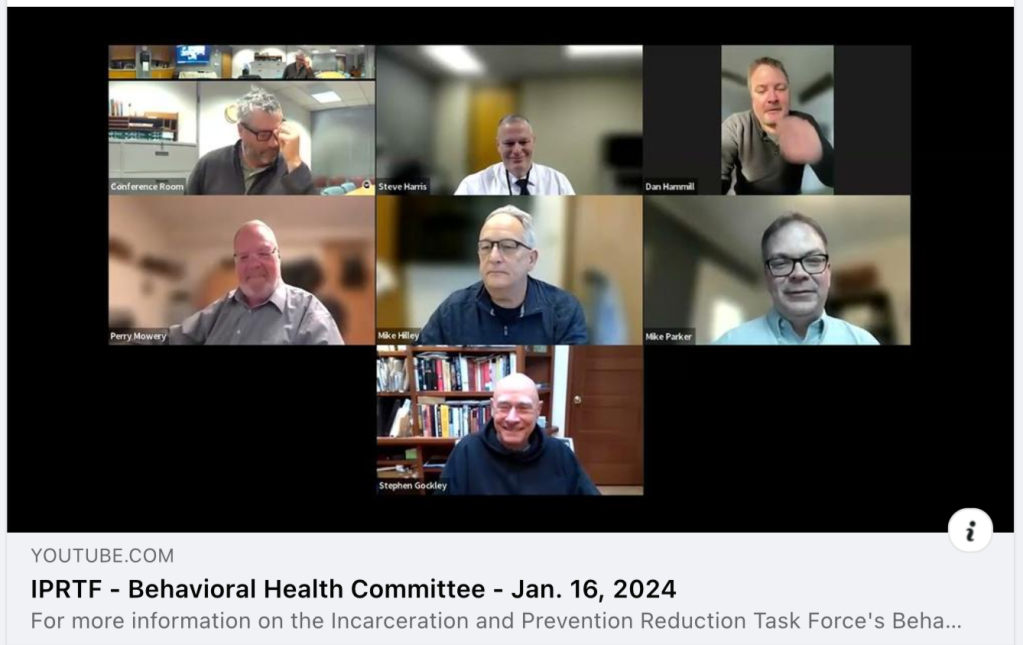
January 19, 2024 Dena Jensen
I’m through the first hour of listening to the 1/16/24 Behavioral Health Subcommittee meeting of the Whatcom County Incarceration and Prevention Taskforce. In the earlier part of the meeting, the committee was discussing various programs and practices to impact the unusually high number of folks in our jails right now who are not being assessed and treated in a timely manner that allows them to be mentally competent to stand trial. In other words these are folks who likely need to be taking medications in order to accurately understand and withstand a court proceeding in which they are charged with offenses.
Under current circumstances, these are often individuals who are therefore not being granted their right to a speedy trial because they are not in a condition to participate in that process.
The discussion was really interesting and folks should listen to gain a better understanding of issues and barriers that are keeping our incarceration numbers hight. Also, a particular remark stood out that I thought more people should be exposed to since it can remove some misconceptions and bias about people who are not taking prescribed medications during their incarceration.
Courtney Taylor, a member of the subcommittee and a Behavioral Health Specialist for the Public Defender Office was speaking and was voicing her concern that any staffing for new programs to address this issue be dedicated positions vs. just one of a staff member’s many job functions:
“We really need dedicated staff. We need a dedicated prescriber. I know it’s true, they are like, like your father said, very hard to find. That’s part of the restoration backlog that you’re seeing is not enough time with a prescriber that can see them in custody soon enough before they decompensate again when they get back from the hospital – because another side note that I just want to add because I’m on the mic anyway, is that a lot of people – actually a majority – when they get back to the jail, it’s not that they’re refusing medication, they are willing to take medication.
“But the problem is, is that Western [State Hospital] gets them stabilized on medications that the jail will not provide. And then they get back to the jail, they withdraw very quickly, and then they’re offered medications that they were not stabilized on. And I don’t know about you, but I would have a hard time accepting that medication once my body and mind has adjusted to something else.”
Even the subcommittee co-chair, Mike Parker was not familiar with this information, so it’s important to inform more people, not only to help remove that particular stigma that surrounds those who are incarcerated and struggling with mental illnesses, but also to help work on eliminating that particular major barrier to reducing incarceration and upholding constitutional rights in our community.

You must be logged in to post a comment.